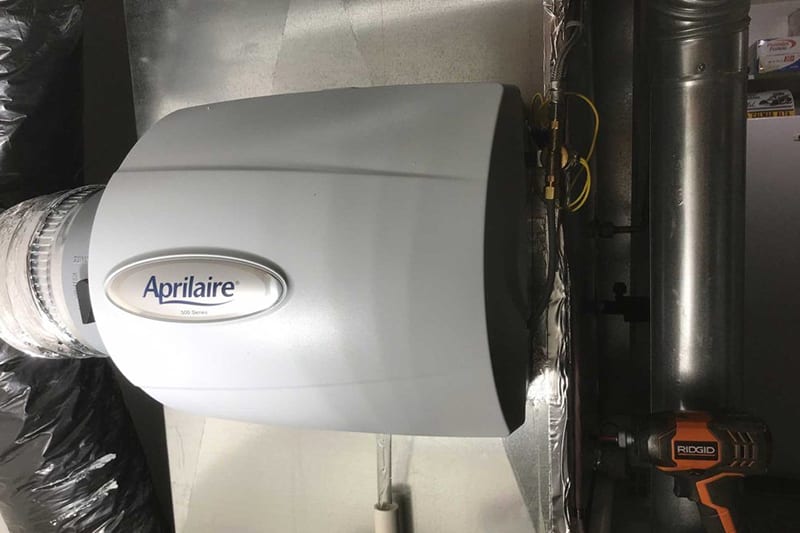ONE OF THE FIRST THINGS WE TYPICALLY ASSOCIATE WITH WINTER IS THE COLD. BUT SOME OF US ALSO CONNECT WINTER WITH DRYER SKIN, A DRY NOSE AND THE SNAP OF STATIC ELECTRICITY AS WE TOUCH SOMETHING. WE MAY ALSO NOTICE THE WOOD IN OUR HOMES – THE WALLS, FLOORS AND FURNITURE – CRACKING, SPLITTING AND SEPARATING. THESE ISSUES, PLUS MORE, ARE OFTEN THE RESULT OF LOW HUMIDITY IN OUR HOMES.
Some of you may have tried placing small freestanding humidifiers in multiple rooms to try solving these issues. That’s like placing a piece of tape on a leaking pipe – it might solve the immediate problem but it’s not a long-term solution. The only way to alleviate some of the discomfort and annoyances dry winter air causes is to have a humidifier installed in your home.
How will a humidifier affect you and your house?
Have you noticed your skin and scalp become drier in the winter? Or maybe you catch multiple colds or have a dry, scratchy throat during the winter months? Dry winter air is often the culprit and can even aggravate asthma, dust allergies and cause nosebleeds.
The air in your home is always trying to reach its saturation point and will absorb water wherever it’s found – including our bodies. That’s why your skin, throat and nasal passages dry out causing us discomfort. That’s also why your doctor may recommended a humidifier to relieve your allergies and asthma symptoms.
Also, virtually everything in your home that is made from wood contains some moisture. When the dry air sucks that moisture out, the wood shrinks and cracks. This causes hardwood, including some engineered floors, to separate at the seams, furniture to shrink and crack, and doors to warp and no longer fit their frames.
Wood requires a continuous and appropriate level of moisture. A humidifier can ensure that the wood in your home does not dry out.
And, of course, most have felt the jolt of a static shock after walking across the carpet and then reaching for the light switch! That “zap” can wreak havoc on home computers and other sensitive electronic devices. Because a quality humidifier maintains the moisture in the air, these shocks are greatly reduced, if not eliminated.
Another advantage of a humidifier: reduced utility bill
Proper relative humidity (the amount of humidity in the air) may reduce your energy costs. Warm, humid summer air feels hotter than dry summer air due to the moisture it contains. That same principle applies to our Alberta homes in the winter. If you keep the humidity inside your home at an ideal level, you can turn your thermostat down a few degrees and still feel comfortable.
But how do humidifiers work?
Humidifiers are usually installed in the ductwork leading out from your furnace. The warm air leaves the furnace, passes through a fan and then flows past the humidifier and out into the rest of your home. Most furnaces, even older ones, can accommodate a humidifier. This process helps to maintain stable humidity levels throughout your home based on your thermostat setting.
Alberta homes need a humidifier
Alberta is relatively dry, especially in the winter, and a humidifier can improve your health, your home comfort and help maintain the longevity of your wooden furniture and floors.
Available in various types and sizes, the best humidifier option depends on the size of your home, your budget and personal preference.
The benefits we shared above are not a complete list, by any means, but they definitely show the benefits of having a humidifier installed in your Alberta home.
Want to Know More? Give Sherwood Mechanical a call and one of our qualified technicians will assess your home to ensure you stay comfortable all winter long.










